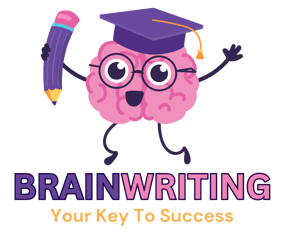Is your child finding school challenging?
Do they feel anxious about reading aloud or writing legibly?
Here's how to identify the signs of various learning disorders.
Writing is a complex process that involves many skills and brain functions, including:
Fine motor skills.
Spatial perception (ability to perceive the space around you).
Working memory (ability to hold and manipulate information in your mind).
Orthographic coding (ability to form, store and recall letters, numbers and symbols).
Language processing.
Conceptualization.
Organization.
Writing and reading are important academic skills that have been associated with overall academic achievement. Children who have difficulty with writing are often mislabeled as sloppy or lazy rather than being recognized as having a learning disorder.
Because of this, a child with writing or learning disorder may have low self-esteem issues and confidence or believe they’re not intelligent. Positive support from loved ones and teachers can help a child overcome these obstacles.
Dyslexia is a learning disorder primarily affecting reading skills, but it also impacts writing. Children with dyslexia struggle with recognizing and processing letters and sounds, which leads to difficulties in reading and spelling.
Dyslexia
Here’s how Dyslexia can affect a child’s writing:
Spelling Issues: Children with dyslexia may have inconsistent and incorrect spelling, even for common words they've learned.
Reversing Letters: Common letter reversals (like "b" and "d") or transposing letters in words can occur.(For example, a child might write "form" as "from" or "stop" as "spot."
Poor Sentence Structure: They may find it difficult to organize thoughts into well-structured sentences or paragraphs.
Slow Writing: The process of writing can be slow, as they struggle to recall letter-sound relationships.
Writing Fluency: Dyslexia can lead to disjointed writing, where sentences lack flow or coherence.
This disorder affects not just writing but also impacts a child’s overall ability to process language, making reading and writing tasks more challenging and frustrating.
Dysgraphia is a learning disorder that affects writing skills. It makes it difficult for a child to write clearly and consistently. Children with dysgraphia often struggle with forming letters, maintaining proper spacing, and organizing their thoughts on paper.
Dysgraphia
Here’s how dysgraphia can impact a child’s writing:
Poor Handwriting: Letters may be messy, uneven, or improperly spaced.
Difficulty with Spelling: They may have trouble recalling how to spell words, even ones they've practiced.
Slow Writing: Writing can be a slow and frustrating process, making it hard to keep up with classroom tasks.
Trouble with Fine Motor Skills: Holding a pencil or forming letters can be uncomfortable or tiring.
Organizational Issues: Structuring sentences, paragraphs, or essays can be particularly challenging.
This can affect the child’s confidence and overall academic performance.
Know More...
Why the dyslexic brain is misunderstood
brainwritingnepal@gmail.com
+977 9849849876
Kathmandu, Nepal
© 2024. Brainwriting All rights reserved.
Brainwriting is founded in 2024 by Khushbu Choudhary with a mission to teach children handwriting skills using the scientific elements of handwriting and the science of Graphology.
